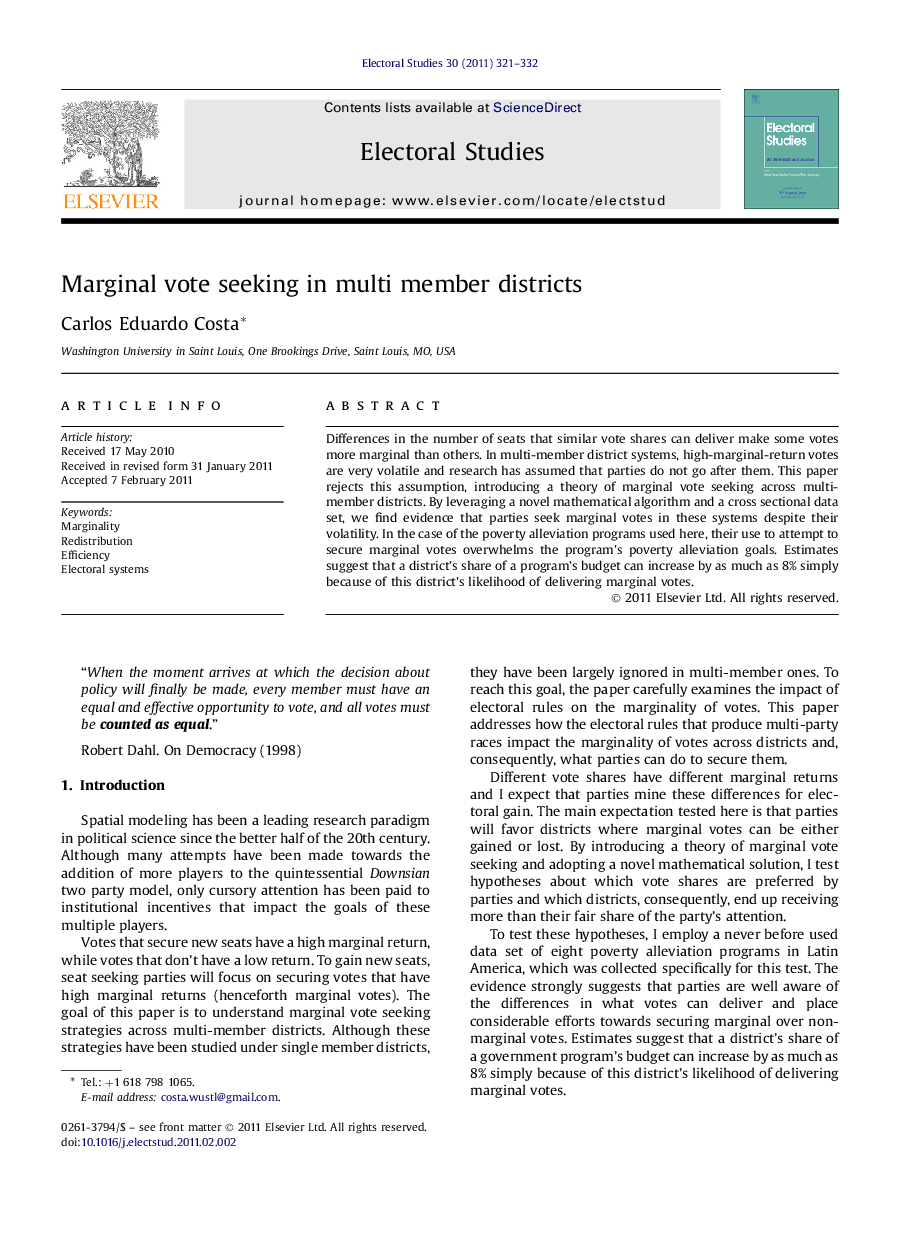| Article ID | Journal | Published Year | Pages | File Type |
|---|---|---|---|---|
| 1052046 | Electoral Studies | 2011 | 12 Pages |
Differences in the number of seats that similar vote shares can deliver make some votes more marginal than others. In multi-member district systems, high-marginal-return votes are very volatile and research has assumed that parties do not go after them. This paper rejects this assumption, introducing a theory of marginal vote seeking across multi-member districts. By leveraging a novel mathematical algorithm and a cross sectional data set, we find evidence that parties seek marginal votes in these systems despite their volatility. In the case of the poverty alleviation programs used here, their use to attempt to secure marginal votes overwhelms the program’s poverty alleviation goals. Estimates suggest that a district’s share of a program’s budget can increase by as much as 8% simply because of this district’s likelihood of delivering marginal votes.
► Different votes have different marginal values and parties take advantage of these differences. ► Marginal vote seeking is a party priority. ► Marginal vote seeking can introduce policy implementation ineffciencies.
